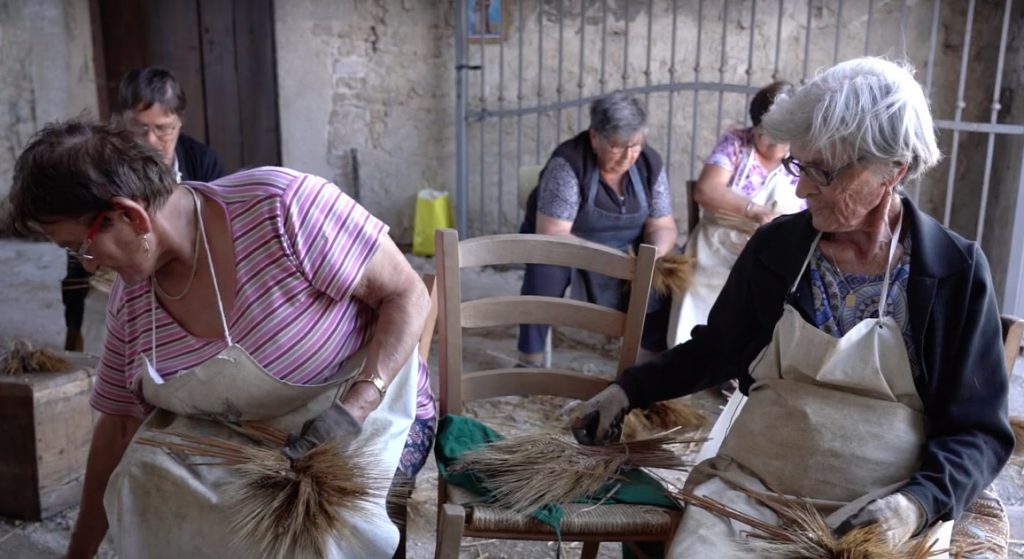The MODI Informative Module is a cataloguing standard of the Central Institute for the Catalog and Documentation (Mibact) intended for census and reporting activities, based on simplified management, albeit framed in the normative system of the Institute itself. In 2014 a specific regulatory application of the module was created, called MODI Application for intangible entities (MODI-AEI), in order to have a specific tool to use for inventories of intangible cultural heritage. The MODI-AEI is therefore an extract of the MODI regulation: it contains both the general parts and the specific parts for intangible entities, inherited in abridged form from the catalog card of the ICCD BDI – Intangible demo-ethno-anthropological entities. By sharing the foundational elements of the BDI card, the MODI-AEI applies to “punctual” entities: the data and descriptions recorded in each module, as well as at least a part of the audiovisual documentation attached, must refer to a single entity identified by a place, a date and a context.
Therefore the inventories of the intangible cultural heritage made with MODI-AEI are never model inventories, but they are always inventories of performative acts, unique and unrepeatable in their contingency.
Until 2018 the MODI-AEI module was also the ministerial standard to be used for the realization of the inventories of the intangible cultural heritage according to the 2003 Convention for the safeguarding of the intangible cultural heritage of Unesco: the inventories made so far can be consulted in the section of the website ICCD: Intangible cultural heritage. Starting in 2019 the ICCD and Mibact’s Unesco Office have prepared a specific module for these inventories, called MEPI – Module for the Inventory of the Elements of Intangible Cultural Heritage, organized so that it adheres to the convention and therefore applied to elements-models.
Among the other inventories produced with MODI-AEI is the Inventory of memories of the food culture of Campania, created by the ICCD in 2015-2016 in collaboration with MedEatResearch – Center for Social Research on the Mediterranean Diet of the University of Studies Suor Orsola Benincasa of Naples, dedicated to significant testimonies of members of gastronomy, culture and art.

Festa del grano in onore di Sant’Anna 01:
saperi sul grano e sulla mietitura a mano
Molise, CB, Jelsi

Festa del grano in onore di Sant’Anna 02:
saperi sull’uso di #cannelle# e #manicone# durante la mietitura
Molise, CB, Jelsi

Festa del grano in onore di Sant’Anna 03:
mietitura del grano e realizzazione di #jérmeti# e di una #casa#
Molise, CB, Jelsi

Festa del grano in onore di Sant’Anna 04:
realizzazione di un #mênocchie# di grano
Molise, CB, Jelsi

Festa del grano in onore di Sant’Anna 05:
canto durante la mietitura
Molise, CB, Jelsi

Festa del grano in onore di Sant’Anna 06:
saperi sull’uso della #traglia# per il trasporto del grano
Molise, CB, Jelsi

Festa del grano in onore di Sant’Anna 07:
saperi sull’allevamento delle vacche per il traino della #traglia#
Molise, CB, Jelsi

Festa del grano in onore di Sant’Anna 08:
lavorazione delle spighe di grano per la realizzazione di #trecce#
Molise, CB, Jelsi

Festa del grano in onore di Sant’Anna 09:
pulitura di #trecce#
Molise, CB, Jelsi

Festa del grano in onore di Sant’Anna 10:
processione con i #carri#
Molise, CB, Jelsi

Festa del grano in onore di Sant’Anna 11:
benedizione dei buoi e delle #traglie#
Molise, CB, Jelsi
